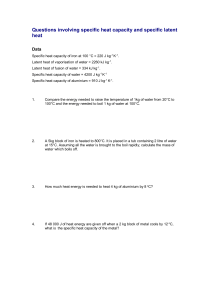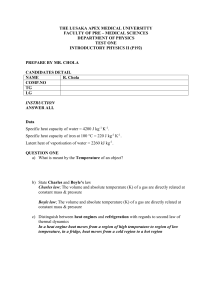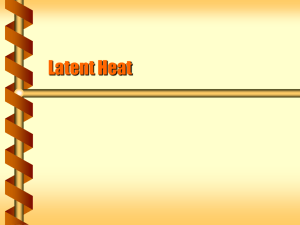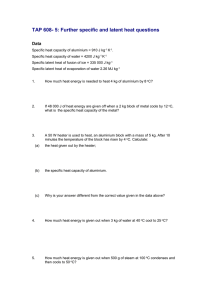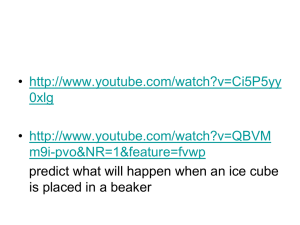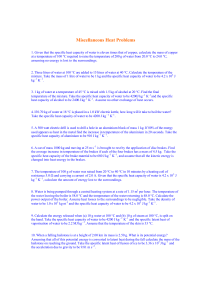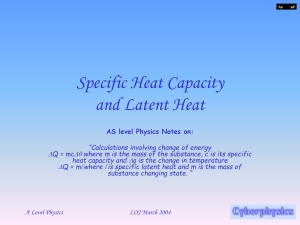Episode 608-4: Questions involving specific heat capacity and specific latent heat (Word, 27 KB)
advertisement
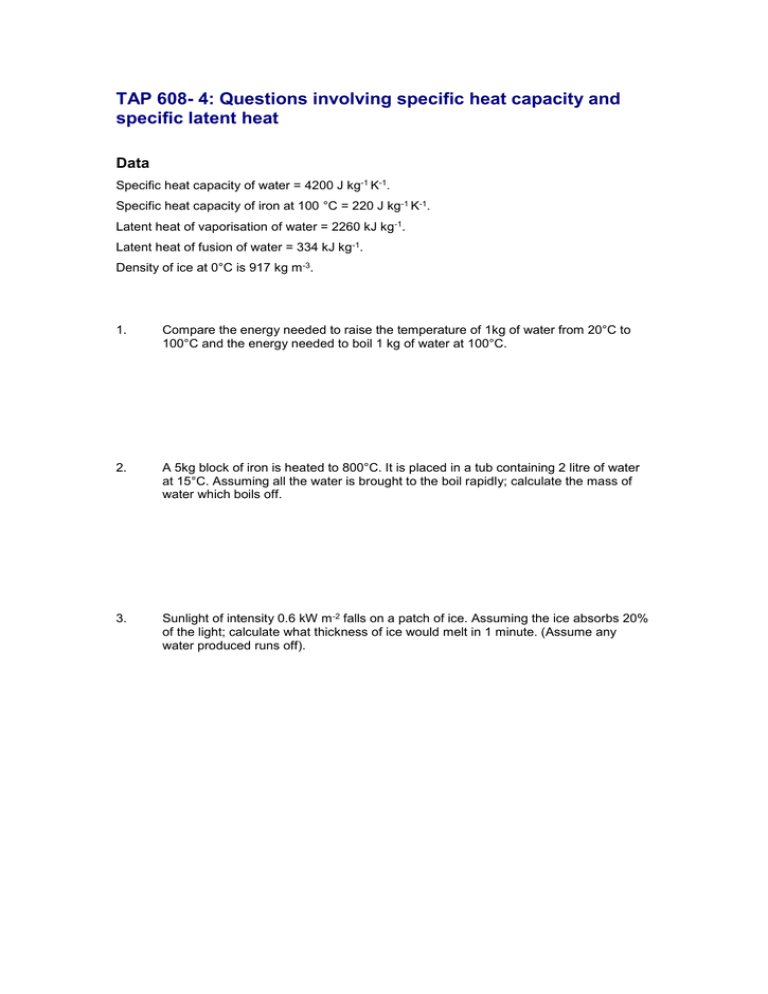
TAP 608- 4: Questions involving specific heat capacity and specific latent heat Data Specific heat capacity of water = 4200 J kg-1 K-1. Specific heat capacity of iron at 100 °C = 220 J kg-1 K-1. Latent heat of vaporisation of water = 2260 kJ kg-1. Latent heat of fusion of water = 334 kJ kg-1. Density of ice at 0°C is 917 kg m -3. 1. Compare the energy needed to raise the temperature of 1kg of water from 20°C to 100°C and the energy needed to boil 1 kg of water at 100°C. 2. A 5kg block of iron is heated to 800°C. It is placed in a tub containing 2 litre of water at 15°C. Assuming all the water is brought to the boil rapidly; calculate the mass of water which boils off. 3. Sunlight of intensity 0.6 kW m -2 falls on a patch of ice. Assuming the ice absorbs 20% of the light; calculate what thickness of ice would melt in 1 minute. (Assume any water produced runs off). Practical advice Pupils may need some guidance. Answers and worked solutions 1. Energy required to heat the water = mCθ = 1 4200 80 = 336 kJ Energy required to boil the water = mL = 1 2260 kJ = 2260kJ. So it takes nearly 7 times as much energy to boil the water as to heat it up. 2. Energy given up by the iron in cooling to 100°C (assuming c is constant) = mCθ = 5 700 220 = 770 kJ. To heat 2 litre of water from 15°C to 100°C requires 2 4200 (100-15) = 714 kJ. This leaves 770 - 714 = 56 kJ to boil some of the water. Mass of water boiled away = E/L = 56 / 2260 = 0.025 kg. 3. In 1 minute 600 60 0.50 = 18000 J are absorbed by the ice for each 1 m 2. Let the ice have an area A. The energy absorbed is 18000 A. Thickness t will have volume At and will be melted if mass latent heat of fusion = 18000 A. The mass of volume At ice is 917At. So 18000 A = 917 At 334000 t = 0.6 10-4 m or 0.06 mm
